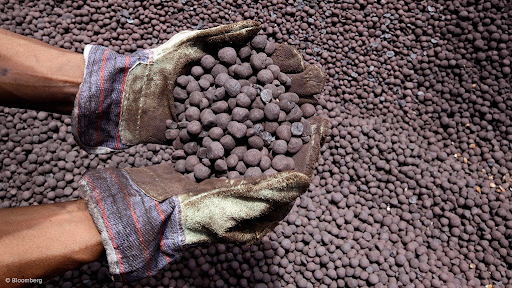Liberia: Bao Chico Iron Ore Concession Sails Through Legislature

The House of Representatives has finally concurred with the Liberian Senate on the ratification of the Mineral Development Agreement (MDA) between the Government of Liberia and the Bao Chico Resources Limited, authorizing the Chinese company to engage in the extraction of iron ore in Gbarpolu County.
On March 3rd; the 16th day sitting, twenty-four (24) Representatives voted for the concurrence of the Bao Chico Iron Ore Concession by the House of Representatives following a report from the Joint Committee on Concession, Judiciary, and Lands, Mines and Energy.
The House’s agreement with the Senate on the MDA of the Bao Chico Resources Limited followed about 120 days of legal battle between the House of Representatives and the Senate over the Chico Iron Ore Concession.
On November 7, 2021, the Senate-approved bill, “An Act to Ratify the Mineral Development Agreement between the Government of Liberia and the BAO CHICO Resources of Liberia”, was rejected by the House of Representatives on grounds that the upper house violated Article 34d(i) of the Constitution and that the Bao Chico Iron Ore Concession is a revenue bill, which is supposed to originate from the House of Representatives.
After the rejection of the Senate's version, the Plenary of the House of Representatives ratified its own version of the BAO CHICO mineral development agreement. However, prior to the House’s passage, the Senate filed a petition before the Supreme Court of Liberia, where they prayed the court to decide the constitutionality of ratification of the Bao-Chico Mineral Development Agreement and the “wrongful” interpretation of Article 34d(i), of the Liberian Constitution of 1986.
The Supreme Court has ruled that the Senate did not violate any provision of the 1986 Constitution while ratifying the 25-year BAO CHICO Iron Ore Concession Agreement for Gbarpolu County, as claimed by the House.
In a unanimous decision, the Court ruled that the agreement is not a revenue generating one, as claimed by the House of Representatives. Instead, it is a concession agreement that would have emanated from any of the two Houses, Senate or Representatives. Both houses had earlier passed separate versions of the BAO CHICO agreement.
Therefore, the court further ruled that there was no constitutional violation, as being argued by the House of Representatives.
Meanwhile, it can be recalled, President George Weah, while submitting the BAO CHICO agreement, said the deal brings huge direct benefits in the forms of employment and revenue, including the payment of all taxes and duties; payments of royalties, and a signature fee of US$3 million.
However, the President did not state the total number of jobs the concession is expected to create. The company’s investment is in the tune of US$500 million, aimed at improving the country’s economy, creating job opportunities and scholarships for citizens as part of its support to the Government’s Pro-Poor Agenda for Prosperity and Development (PAPD).
